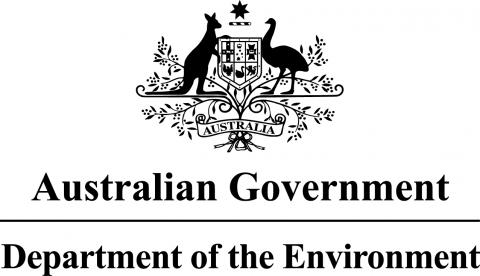Resources
The Conversation
28 August 2013
Recent studies have shown several marine species are struggling to adapt to the excess carbon dioxide and heat which oceans are absorbing. Evidence is mounting of the risks we’re taking with our oceans.
Life is finely tuned to the physical and chemical conditions that surround it. This “tuning” is the result of thousands – if not millions – of years of natural selection, optimising the physiological and biochemical ways marine organisms respond to a naturally variable environment. Read more
ABC News
14 January 2014
It's been an escape technique for humpbacked conch snails for thousands of years - a flicking foot that is triggered when they smell predators.
But ocean acidification may put a hitch in the getaway of the snails with James Cook University researchers finding that the snails' jumping response is compromised as CO2 levels in the water rise. Read more

The Guardian
31 March 2014
Australia is set to suffer a loss of native species, significant damage to coastal infrastructure and a profoundly altered Great Barrier Reef due to climate change, an exhaustive UN report has found.
The Intergovernmental Panel on Climate Change report, delivered to the world’s governments in Japan on Monday, states there is “significant change in community composition and structure of coral reefs and montane ecosystems and risk of loss of some native species in Australia” as a result of warming temperatures and ocean acidification. Read more

ABC News
29 January 2014
A CHEMICAL FOUND IN MANY soaps, laundry detergents and cosmetics is killing young coral reefs at concentrations commonly found in the environment, according to a new study.
Corals, which provide habitat for a rich array of fish and other marine life, are threatened worldwide. The new study is the first to find that benzophenone-2 (BP-2) is toxic to coral reefs, although it builds upon previous studies that reported that corals are harmed by other chemicals in wastewater and runoff. Read more

ABC News
11 September 2013
CSIRO researchers say the attitudes of north Queensland residents will help shape future management policies for coastal areas near the Great Barrier Reef.
The group is surveying residents in Mackay and the Burdekin to gauge how important the coast is and what value is placed on conservation, as well as commercial and recreational uses. Read more

The Guardian
09 October 2013
Environmentalists and the mining industry have set out competing visions for the future of the Great Barrier Reef ahead of a summit that will aim to set Queensland’s priorities for the next 30 years.
The Queensland Plan, an initiative of the state government, will be finalised at a two-day meeting in Brisbane starting on Wednesday. More than 600 delegates from a range of community and business groups are attending the gathering. Read more

Herald Sun
19 July 2013
A CONSERVATIONIST has called for an end to all indigenous hunting of dugongs until the species recovers as numbers dwindle dramatically.
There are fears that the marine mammal population is in freefall as flood damage to their habitat has push them to the brink. Read more
Nature World News
05 July 2014
University of Queensland researchers predict an increase in coral deaths this summer.
Researchers studied the Porites coral colonies or 'bommies' in the Great Barrier Reef. Porites are considered to be more resistant to environmental changes than other types of corals. Read more
The University of Queensland
13 January 2014
University of Queensland researchers have found physical evidence in Great Barrier Reef corals of a little-known, long-term climate pattern in the Pacific Ocean.
The Pacific Decadal Oscillation – discovered and named only in the 1990s – describes phases of warm and cool sea surface temperatures that alternate between the Pacific Ocean’s east and west, usually over periods of 20 to 30 years. Read more
The Guardian
19 September 2013
The rampant overfishing of sharks, often solely for their fins, is causing a damaging chain reaction that could significantly degrade coral reef systems, a decade-long Australian-led study has found.
Scientists from Australia and Canada, led by the Australian Institute of Marine Science, discovered that the removal of sharks from two remote reef systems led to a sharp decline in the number of fish that help keep coral healthy. Read more




